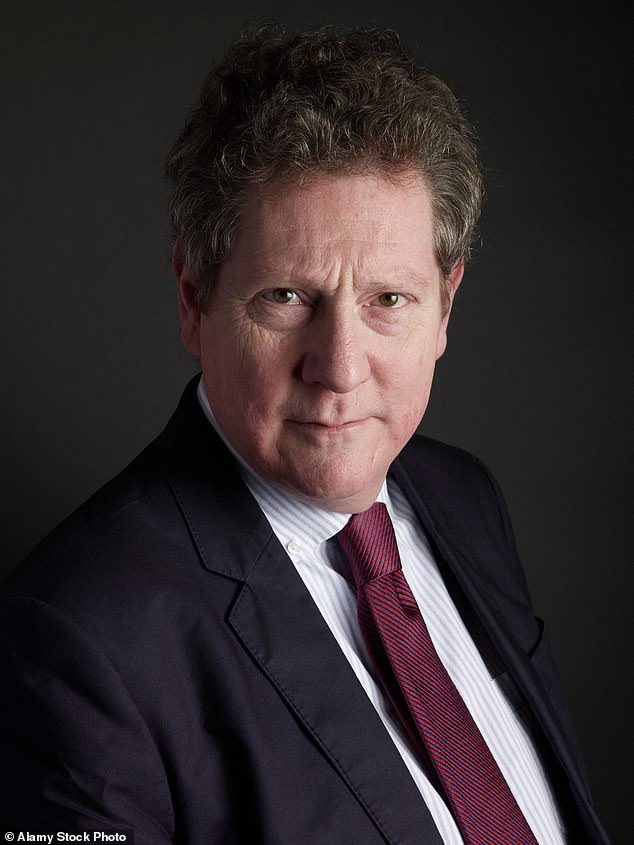Files related to Prince Andrew’s numerous business trips will not be released until 2065 – meaning Duke will not face scrutiny unless he lives to 105
Files related to Prince Andrew’s numerous business trips won’t be released until 2065 – meaning Duke won’t be scrutinized unless he turns 105
- The duke’s correspondence with ministers will be kept secret for decades
Files related to Prince Andrew’s numerous business trips won’t be released until 2065, meaning the disgraced duke won’t face public scrutiny unless he turns 105.
The Duke of York’s correspondence with ministers – including details of dealings as a trade ambassador – came to light in response to a Freedom of Information (FOI) request to the Foreign Office submitted by royal biographer Andrew Lownie.
Several requests were made by the royal expert to obtain more information about numerous business trips – usually paid for by the taxpayer – made by the now 63-year-old Prince.
Under normal rules, documents transferred by government departments to the National Archives in Kew are kept secret for 20 years. But a special dispensation is granted to the royal family.
However, Mr Lownie believes there is a ‘culture of secrecy’ surrounding royal correspondence and called for ‘a much more mature approach to releasing royal records’.
Files relating to Prince Andrews’ numerous business trips won’t be released until 2065 – meaning he would have to live to the age of 105 to face public scrutiny

The Duke of York’s correspondence with ministers – including details of his dealings as a trade ambassador – came to light in response to freedom of information. Pictured: Prince Andrew speaking at the World Economic Forum in Davos, Switzerland, when he was a trade envoy
He told the Telegraph that he hoped that with King Charles’s new government, “only relevant FOI exemptions such as national security, relations with another country and information given in confidence” would be applied alongside data protection provisions.
He said: “We are in the preposterous position that Prince Harry can reveal the most intimate details of royal life months ago for personal commercial gain and that royal households are currently at odds with each other, but historians cannot look at records.”
Many questions remain about his role as a trade envoy, a public appointment paid for by the taxpayer, and his associations with figures like Jeffrey Epstein.
“There is also a great public interest in knowing, for example, who is paying for his safety now that he is no longer a working royal.”
Although he described himself as a monarchist, who is currently writing a biography on Prince Andrew, he said that doesn’t mean he “doesn’t believe the royal family shouldn’t be subject to scrutiny.”
Documents relating to Andrew’s brother, the Duke of Edinburgh, Prince and Princess Michael of Kent, and Princess Alexandra also have the same time difference – 105 years from their birth – for release.
Prince Andrew was Britain’s Special Representative as Envoy for Trade and Industry from 2001 to 2011.
He was forced to resign after being photographed with sex offender Jeffrey Epstein in New York’s Central Park after the billionaire was released from prison for serving an 18-month sentence for sex offenses.

Royal biographer Andrew Lownie believes there is a ‘culture of secrecy’ surrounding royal correspondence
The duke also faced criticism over his “very close” friendship with SAif Gaddafi, the son of Libyan leader Muammar Gaddafi, and Tarek Kaituni, a convicted Libyan arms smuggler.
Mr Lownie told the Mail yesterday: ‘Many questions remain about his role as a trade envoy, a public appointment paid for by the taxpayer, and his associations with figures like Jeffrey Epstein.
“The release delays create a vacuum for speculation and fantasizing. Their release would help restore confidence in the institutions, not least in the monarchy.’
In a copy of the FOI letter, seen by the newspaper, the government said regarding the release: “Some information is withheld pursuant to Section 37 (Communication with Her Majesty and Honour), Section 40 (Personal Information) and Section 41 Information Provide Confidence Waivers.”
